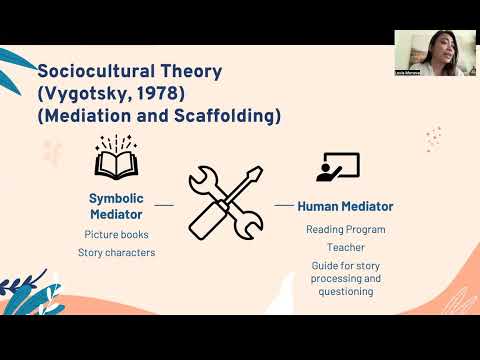 Speaker: Ma. Lovena Moneva
Speaker: Ma. Lovena Moneva
 Affiliation: Trnava University
Affiliation: Trnava University
Title: Developing Children’s Socioemotional Skills Through Picturebook
Abstract (Ma. Lovena Moneva, Trnava University and University of Basel At the beginning of children’s lives, different domains of development are only starting to progress (Stitt, 2013). Children’s concepts of the world are just beginning to expand through their experiences (Byrnes, 2020). At the same time, they learn behaviours from their interactions with other people (Lindemann, 2013). Because of their still developing cognitive and language skills, they may not yet be able to fully express how stories impact their lives. Instead, the transformative impact of literature on the concepts of “others” and “self” can be linked to the development of social and emotional skills and are demonstrated as behaviours. This study will explore the use of children’s picturebooks in developing socioemotional skills relevant to today’s digital world. Specifically, the presentation will focus on a newly developed conceptual framework showing how story characters can be used to model target behaviours to children. Data will be gathered in autumn 2022 from early childhood classrooms in Slovakia. These classrooms will implement a literature-based intervention program designed by the researcher. This study hopes to provide empirical evidence to support the use of picture books in children’s socioemotional development and show the transformative effects of engaging with narratives at an early age.


